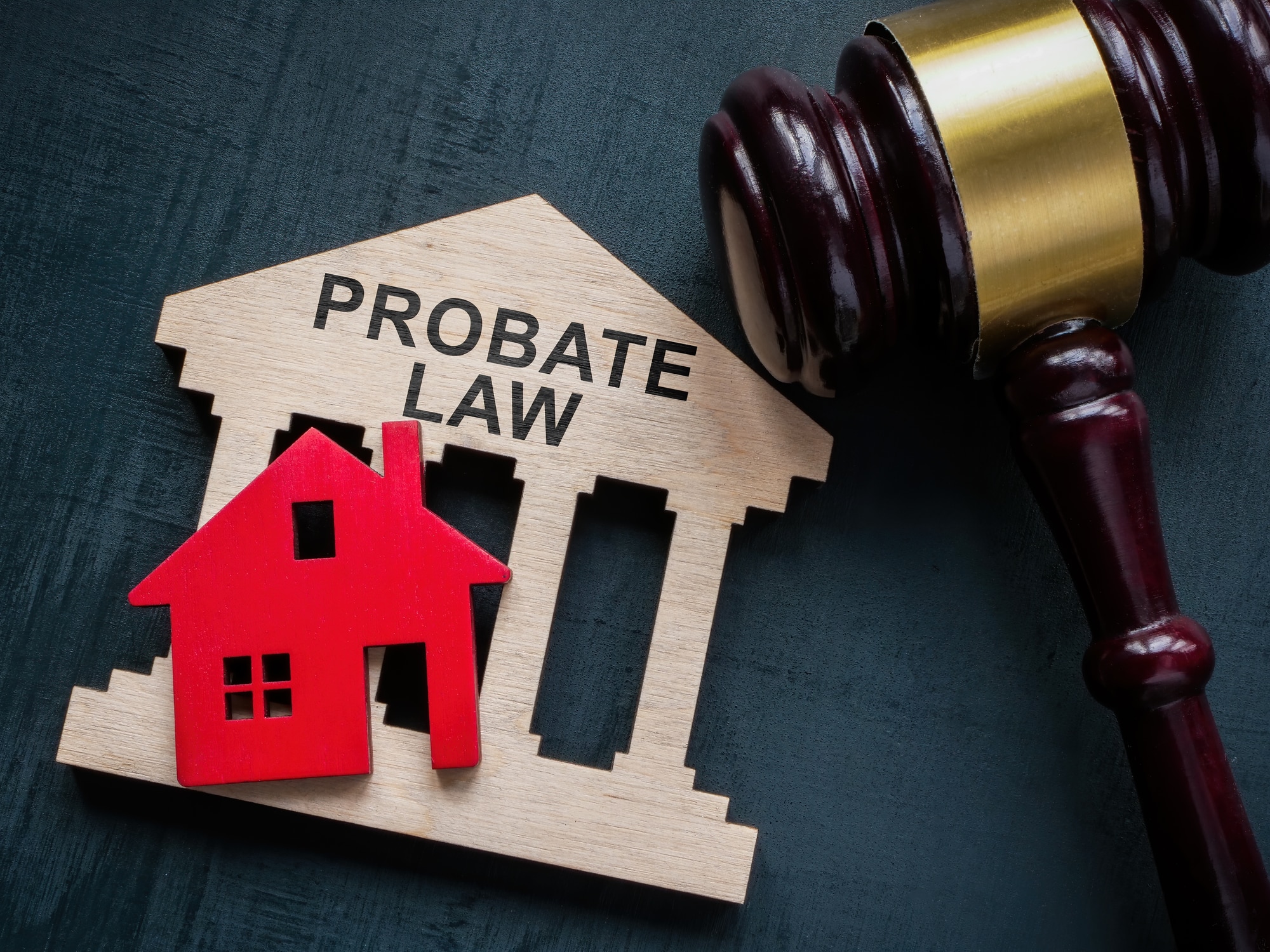Hello and welcome to trusted. Uh, this is the podcast where we talk about all things that involve trusting others, especially attorneys. I’m your host, Blake Johnson. I am an estate planning attorney. I am an entrepreneur and I am an author, a so just gives you a little bit of history about me. The topic today is power of attorneys. Now, I don’t mean a power given to an attorney just because he passes the bar. Uh, the only thing that does is it requires him to work more. Uh, I’m talking about a power of attorney, uh, as a regards to giving someone else the ability to act on your behalf. Let me say that again. A power of attorney is the means that you’re giving someone the authority to act on your behalf. Now, there are two main categories, uh, in the power of attorney. A sense. Uh, the first one is healthcare power of attorney.
The second one is an asset power of attorney. So starting with healthcare, power of attorneys, uh, there are some Trust Attorney Las Vegas times referred to as a health care directive, a living will, a DNR do not resuscitate. A, the, I kind of all fall under that same category of healthcare power of attorney. Now each state typically has its own form that they’ve set up and that they recognize as the valid health care power of attorney or the healthcare directive. And uh, it’s really easy just Google your state name, healthcare directive, healthcare power of attorney. You should be able to find it for free, printed off and you can fill it out and sign it, um, in whatever state you live in, you want to use that states form because typically, um, you’re most likely to go to a hospital in that state and the doctors and the hospitals in that state recognize, accept and follow those healthcare power of attorneys that the state has authorized in there where they practice at a, so it makes it a lot easier to enforce it, um, for your, the person that you named to actually act on your behalf.
Especially if you’re naming someone who’s not, you know, your spouse, your kids. Um, they want to be, you want to be able to have something that they recognize and that there’ll be able to accept and follow. Um, so now what does it mean or what does this health care power of attorney do? A first thing you’re gonna do is you’re going to name an agent or your maybe referred to as your attorney, in fact, and that’s the person who you want to make healthcare decisions for you. You know, so who’s going to decide if it comes to it, whether to pull the plug, who’s going decide, um, you know, what procedures need to be done, those kinds of things. Uh, typically if you’re married, that person is your spouse, but it does not have to be, um, you know, maybe your spouse, you know, wouldn’t be able to handle the pressure.
So you name a parent or a sibling. Uh, that’s definitely a, your discretion, your decision to be able to do that. The other thing that health care power of attorney does is it gives that agent or that attorney in fact guidance on how they should act. So, you know, typically it’ll have something in there about, um, you know, do you want your life prolonged to the greatest extent possible? Uh, you know, that do not resuscitate Claude’s. Uh, if you’re in a coma, um, you know, do you and doctor say you’re not come back? Do you want them to pull the plug? Do you still want them to give you the feeding tube, uh, food and water through, uh, you know, through the feeding tube after you’ve, uh, after all their treatment is stopped. Um, do you want to participate in medical research? So, you know, maybe there’s a new cancer drug that’s not approved by the FDA, but do you want to be able to participate in that?
Um, are you an organ donor? If you pass away? Um, do you want to be able to, uh, have relief from pain of suffering even if you don’t want them to resuscitate you? So those are all kinds of things that you can address. Typically, there’s a section there if it doesn’t specifically ask for that, um, where you can write in your own instructions. Uh, the other thing we always advise our clients to go along with the healthcare power of attorney is to talk to that individual and then write down, you know, what your thoughts and feelings are, what you want to have happen. Hey look, you know, I’m single, I don’t have any kids. I have all this money. I want them to spend every last penny they can to keep me alive. Or you know what, no, I, I’d rather than money to go to my spouse and kids if it’s just gonna, you know, burden them to have me sitting, um, you know, in a coma for 10 years.
So those are the kinds of things that you address with the healthcare power of attorney. Like I said, you can go do that yourself. Go Google your state name and healthcare power of attorney and the form should come up. Typically. Either have to have a witness by two people or have the document notarized, uh, but not, not something that you need an attorney to, to execute. Now if you’re coming to see power or uh, uh, an estate planning attorney, hopefully they do that as part of the documents that you’re doing. Um, so definitely we’ll be on the lookout for that. Now let’s contrast that with the asset power attorney, which just like the name suggests, it is control. You’re giving up a controller, allowing someone to act on your behalf in regards to your assets. Uh, really what the power of attorney does is you’re authorizing someone to sign or act on your behalf and you can name more than one person.
Same thing with the health care power of attorney. You can name a to people and um, you know, you can even name three, four, five, however many want. A general recommendation is, you know, two or less just because getting multiple people to agree multiple people to sign documents can be a problem. Now within the asset power of attorney, there are three sub categories. Uh, the first one is called a general power of attorney. The second one is a springing power of attorney. And the third one is a specific power of attorney. So let’s go through through these, one by one, a general power of attorney. Uh, it just like it sets, you know, name says it’s general, it’s for everything. So from the second you sign that document, whoever you name is your power of attorney, you’re giving them full authority to sign on your behalf.
So make sure you really, really trust this person because what that means is they could go sell your house without your authorization. They just have to take the power of attorney and could do it that way. They could empty your bank account, um, you know, do all those things, uh, related to your assets, whether you’re there or not. It doesn’t matter if you’re incapacitated, they can act on your behalf and you’re not going to have a whole lot of risk course. Um, because the bank is supposed to honor that power of attorney or the title company is going to look and say, Oh yeah, that’s a valid power of attorney. You know, you have the authority to sign. No problem. Um, so really, really trust who you name is that agent. Um, the springing power of attorney. Typically, if you’re, you know, a younger not want to give somebody to that full authority but you want something in place in case something does happen to you, are you become incapacitated.
The springing power of attorney is a really great option. What it says is basically it takes two doctors to say your ink incapacitated. They have to sign a written statement saying that you don’t no longer able to handle your financial affairs. And then that power of attorney springs into effect and then the person has the ability to act on your behalf. So they have to get those two doctors’ signatures, um, saying that you’re incapacitated and then they can go and do all those things, you know, you know, pay the bills, sign on your bank account, sign on the house, um, but you know, has that layer protection saying, all right, we’re going to require two professionals to declare you incompetent, uh, before we give somebody that power. So still truck, make sure you really trust who that person is, but it’s not as, um, concerning, you know, while you’re still healthy and, and have your wits about you.
Now, the third one is this specific power of attorney. And this is probably the one that’s used most often. Um, you know, typically in real estate, especially, let’s say, you know, you’re, you’re across the country, um, you know, you, you’ve recently relocated. You’re trying to sell your previous House, um, and you don’t want to have to be able to have to fly back to sign the documents to sell the house. So what you can do is you can give your pet, you’re a realtor or a friend or a family member, a specific power of attorney. You can do it for a specific time, you can do it for specific transactions. So for the sale of my house at this address, um, and typically I would say, and within, you know, the next six months, those things all, um, can be specified. You can kind of put any limits you want in there or, you know, I make, I give a specific power of attorney for this person to sell this stock or, um, to buy this house, whatever, uh, whatever you want to do there.
So those are the three main categories of power of attorneys. Now, something about a power of attorney, uh, it is not valid after death is only valid while the person is living. Now from a healthcare standpoint, that makes sense. Okay. After they’re dead, there’s no more health care decisions to be made. But from an asset Trust Attorney Las Vegas perspective, um, that’s really why you need to have your full estate plan in place, have the trust, have the will, um, because those are the things that take over. Once you die at once a person dies, the power of attorney is Nolan void and you don’t have any more authority or your agent doesn’t have any authority to act on your behalf anymore. Uh, and done their rule of advice is, um, you know, you want to renew or resign that power of attorney, even if you’re not changing the listed about every five to seven years.
What we found is hospitals and banks have kind of come up with these internal rules, not, don’t know where they came from. Probably had a bad experience once it says that if the power of is over five years old, they won’t honor it. And what that means is you have to go get a court order to basically hold them in contempt so that they can, you can enforce the power of attorney and act on, on the individual’s behalf. So, you know, every five years or so, you know, sit down, resigned the documents, just so we have a current version so that you don’t run into that problem. Um, the last thing that power of attorneys are really good at is it can help avoid a guardianship. So guardianship is, you know, a full bone process. You have to go before a judge, say why you want to be appointed guardian, prove that the person is incompetent, uh, proved that they can’t handle anything.
There’s nobody else, you know, higher in line than you. Um, and it just becomes this long drawn out process. And then even after you get appointed, you have to make, you know, regular reports. You have to, um, you know, get permission to act on certain things. So it’s a long process. But with the power of attorney, what you can do is, you know, you show those documents and you don’t have to get the court approval to do it. So we have clients that we’ve been named to asset power of attorney for. Um, and so we’re, we’re taking care of all their bills. You know, we sold the house because they’re in a full time, a memory care facility. Um, you know, we’ve done things like, you know, we pay their monthly bills, uh, you know, all those things. And because we, that power of attorney, we don’t have to go get, you know, through the guardianship court to get that appointed or approved.
Uh, and it’s, it’s made it a lot more cost effective for the clients so that they can, um, you know, have the best care and, you know, also make sure that their finances are in order. Um, so that’s power of attorneys in a nutshell. Uh, you know, so the two main kinds, healthcare, power of attorney, asset power of attorney, uh, they worked together. You know, healthcare handles your medical decisions, the asset power of attorney handles, you know, your assets. Anything, you know, as far as, uh, even talking to, let’s say, um, you know, the power company to shut down the power. You need a power of attorney to do that. Um, you know, as well as selling the house or make paying bills, those kinds of things. They all fall under that big, broad Trust Attorney Las Vegas category. So hopefully that gave you some insight and, um, we’ll see you next time.




